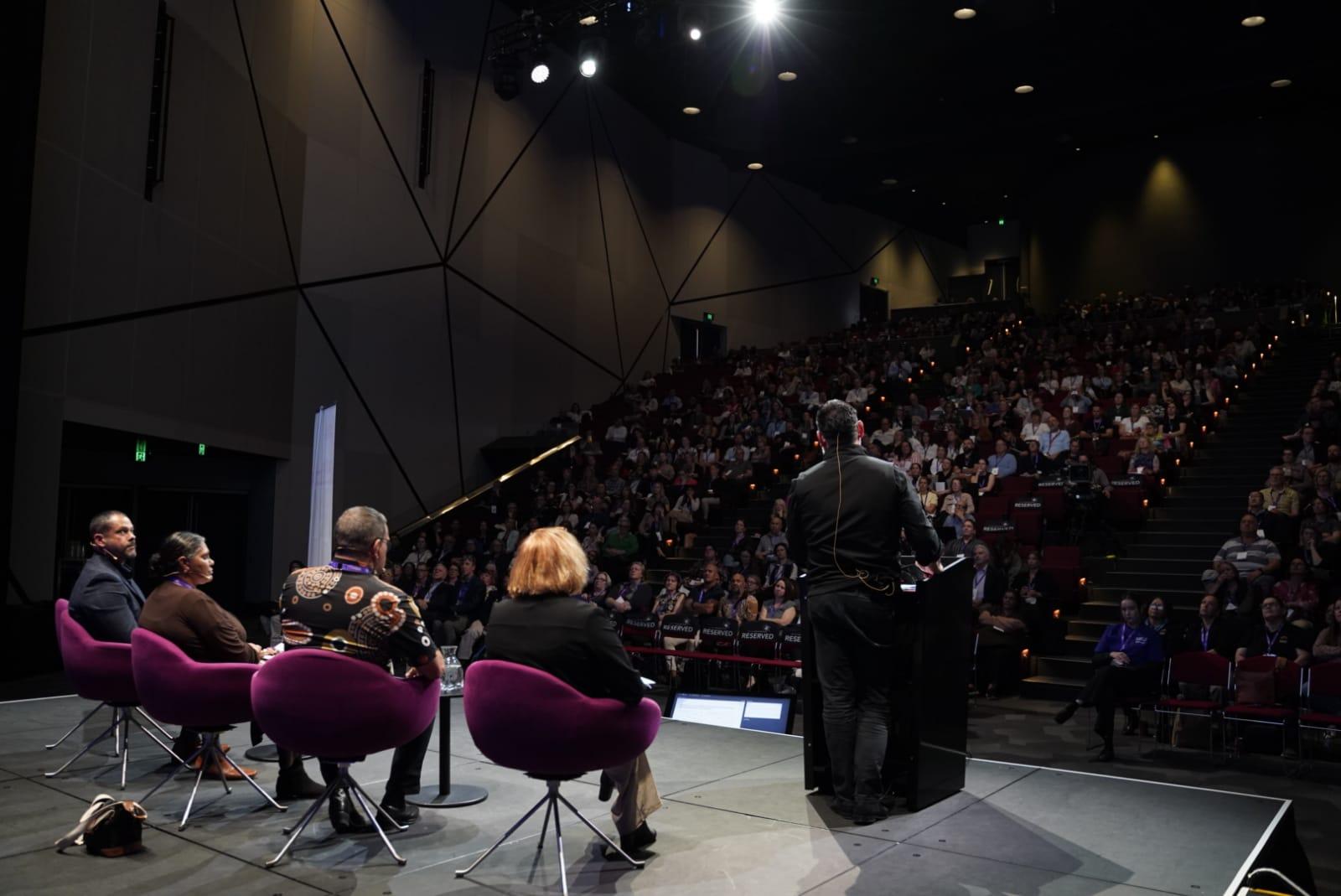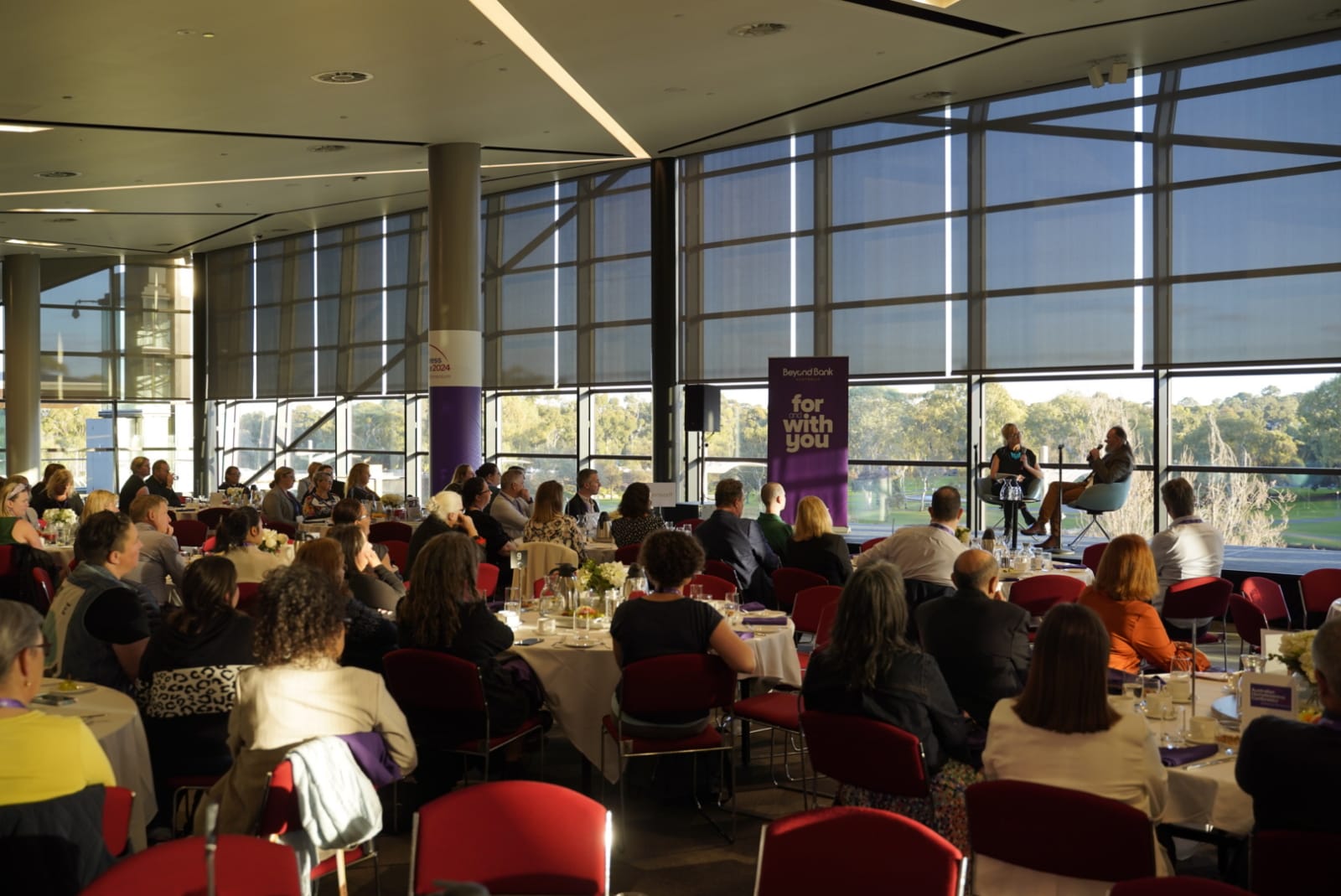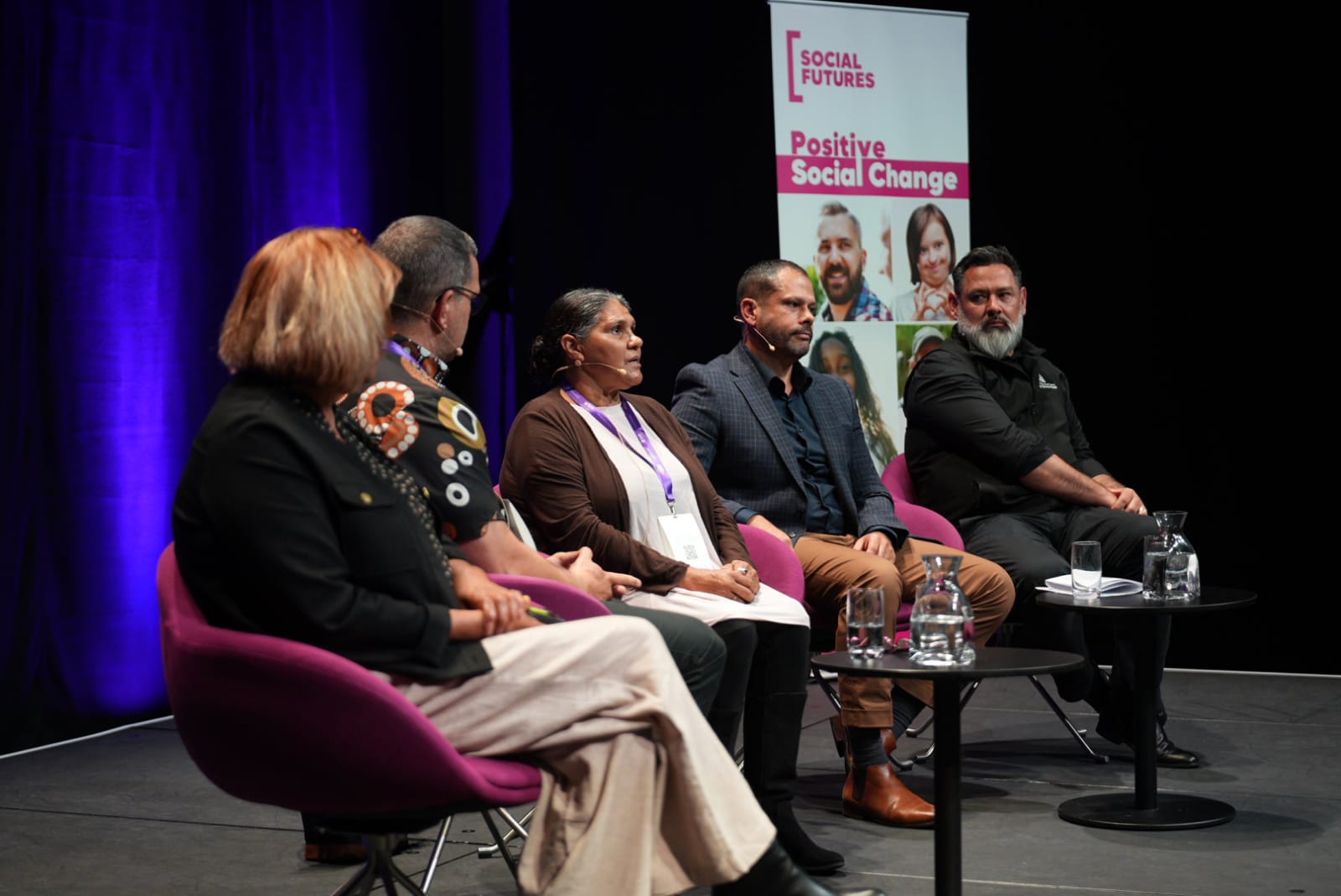
Australian Homelessness Conference 2024 brings connection and clarity to a sector gathering momentum
15 Aug 2024
The Australian Homelessness Conference 2024 wrapped up in Adelaide on Wednesday 14 August, following two days of inspiring and thought-provoking presentations and panel discussions. Attended by around 800 delegates from across the Australian homelessness sector, the conference featured nearly 90 speakers across 22 sessions, as well as a networking breakfast.
“Gathering momentum - the 2024 conference was an important opportunity to connect, to clarify the challenges the sector faces, and to chart the pathways that will move the sector forward,” said AHURI Managing Director, Michael Fotheringham.
The program featured presentations by two international speakers, Jemine Bryon, Deputy Assistant Secretary, Office of Special Needs, US Department of Housing & Urban Development, and Tim Richter, President & CEO, Canadian Alliance to End Homelessness. These discussions highlighted some important differences between our systems as well as remarkable parallels in the issues each country is working to address.

Right image: Plenary 2: Tim Richter
Tim Richter drew on extensive data and compared responses to natural disasters to explain that homelessness can be solved with a coordinated system level response. Showcasing Canadian successes he demonstrated how reframing the issues of homelessness away from the fault or failure of individuals to a solvable, structural problem can deliver sustainable results, making homelessness rare, brief and non-recurring.

The program prioritised listening to the voices of service users, with three sessions dedicated to exploring best practices and examples of lived experience and expertise shaping policy and program delivery. Half of the sessions across the conference program included a speaker bringing an identified lived experience perspective, resulting in some powerful, honest and important conversations.

Three dedicated sessions were led by Aboriginal and Torres Strait Islander speakers, showcasing inspiring examples of Aboriginal led research, program delivery and service design. Speakers articulated an urgent and united vision for self-determination in service provision for Aboriginal and Torres Strait Islander people, in order for breakout progress to be achieved on closing the gap on housing and homelessness.
Other sessions across the program explored a host of issues, including responses to family violence; program evaluation; funding for outcomes; and early intervention to name just a few.

The conference closed with a rousing final session looking forward to what’s next for the Australian homelessness system. The panel urged the sector to better use its influence for change; to challenge policymakers to set a higher benchmark for what is acceptable for people who are unhoused; to shape more human-centred systems; to re-examine relationships with Aboriginal and Torres Strait Islander movements and organisations; and most practically…to drive an end to the systemic shortages of housing that fuel homelessness.
